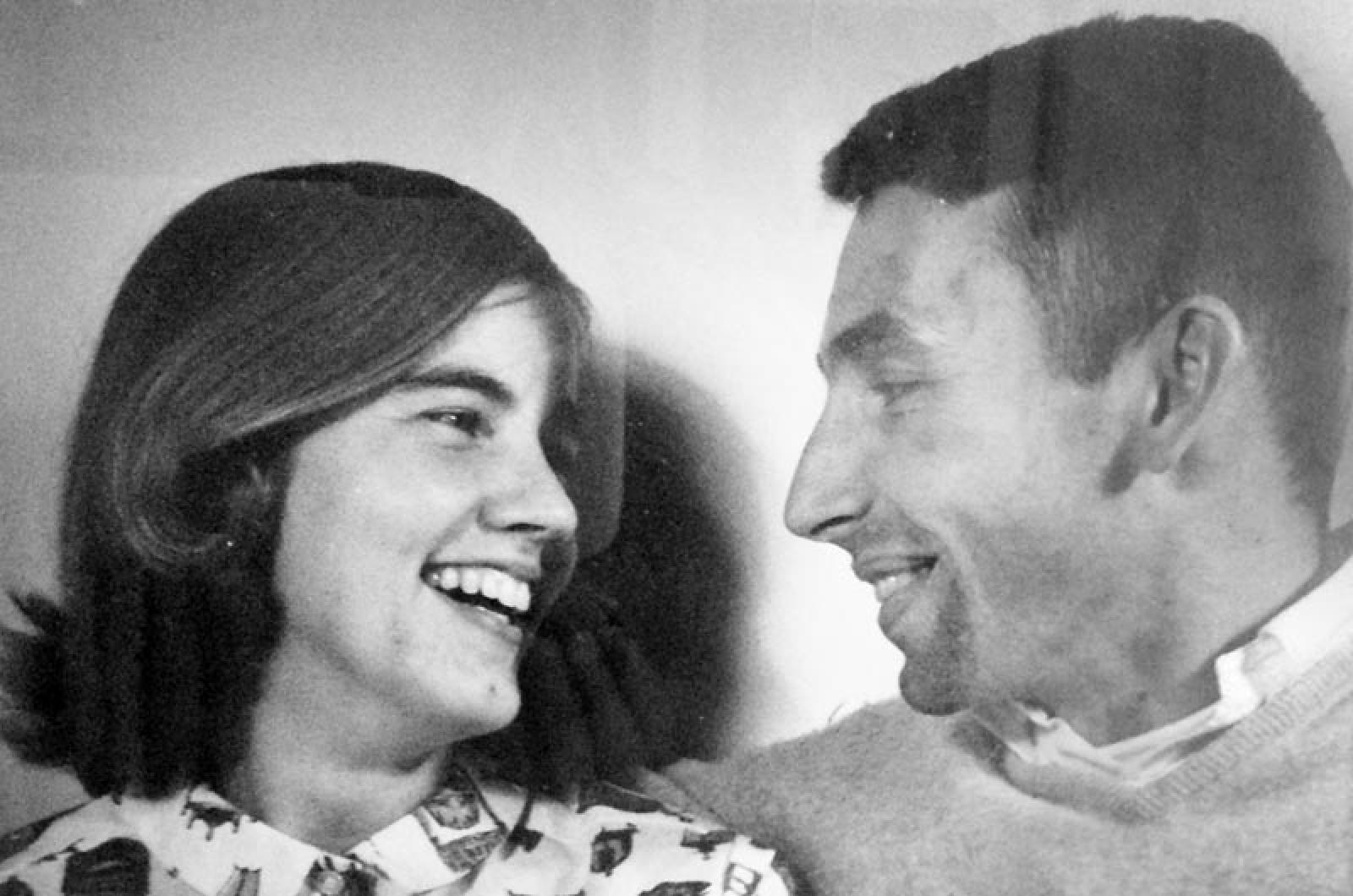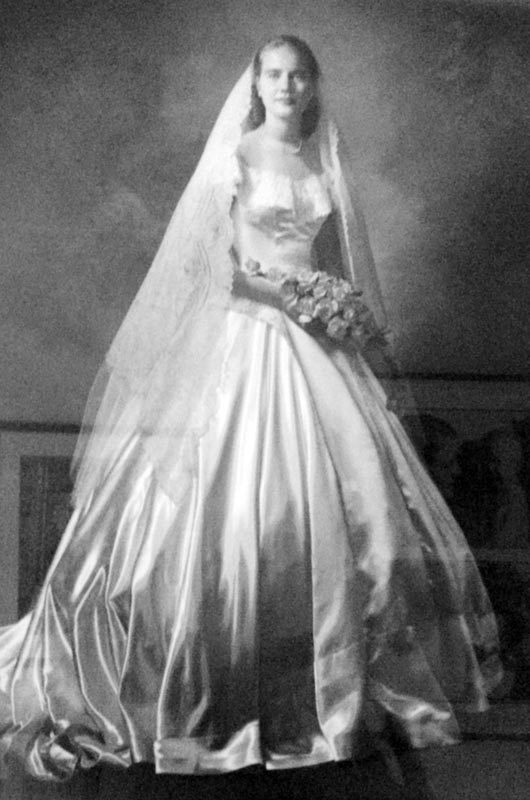When Lucy Durr was a high school junior in Montgomery, Ala., her older first cousin, John, invited her to a party. There John introduced Lucy to his good friend Sheldon Hackney, a college junior.
“I fell in love with him immediately,” Lucy told me recently, giggling like the schoolgirl she was at the time.
What was it about Sheldon that so captured her young heart and lasted for more than half a century?
“Well,” Lucy said with a devilish grin, “for one thing he was tall.”
A noted historian of the American South and past president of the University of Pennsylvania, Sheldon Hackney died Sept. 12 at his Vineyard Haven home in the company of his children, grandchildren and beloved wife of 56 years. Those who knew the Hackneys well say it is impossible to talk about one without the other, such was the strength of their partnership and bond of love.
“It’s as though they had their own unique glue that kept them together,” said Tess Bramhall, a longtime close friend. “Even when they came to our house for dinner parties, Lucy would always sit next to Sheldon. There was never a space between them.”
Lucy, too, was tall. “I guess he thought I was good looking,” she told me this week.
And so did many of the boys at Lucy’s high school, according to her sister, Virginia Foster Durr, also known as Tilla.
“She was absolutely a honey,” Tilla said, “And our yard was always full of Harleys. Until she met Sheldon.”
Now 76, Lucy still manages to look like a honey, hardly showing her age, except for strands of gray in her medium-long bobbed hair that sometimes blows in her eyes when she hits one of her mean forehands on the tennis court down the hill from their home.
The real beginning of Sheldon and Lucy’s courtship started with a long-distance phone call from Birmingham, where Sheldon lived, and an invitation to a movie. Sheldon drove almost 93 miles to Montgomery, and while Lucy can’t remember the movie, she remembers the end of the evening.
“He kissed me and I liked it,” she said, smiling.
They stayed in touch — kind of — because while Sheldon was still at Vanderbilt University in Nashville, Lucy had graduated and was now miles and light years away at Radcliffe College in Cambridge. This was before the internet or cell phones and long distance calling was expensive, especially for a college student. But Sheldon had his eyes on the prize and would from time to time drive the 1,000-plus miles, more than 16 hours, to Cambridge to see Lucy.
“I thought that was pretty brave,” Lucy recalled. “That was a long time in an old car.”
By the time Lucy was a sophomore, Sheldon had graduated and joined the Navy. Lucy Myers, who along with Lucy cooked for a family in Cambridge to earn extra money for school, remembers they used to talk about Sheldon, and Lucy would always refer to him being “in the Med,” meaning that he was stationed somewhere in the Mediterranean Sea. When he came back to the U.S., Lucy drove the old car he had given her to Philadelphia to meet him. When he failed to appear three hours after she had expected him, although worried, she went to bed. And remembering it as if it were yesterday, Lucy recalled:
“It was about 10 o’clock when he finally got there, and of course I was in my pajamas. But I hear this ‘beep, beep,’ and I ran down in my pajamas and there he was, and he had this wonderful, loving look on his face and said right off:
“Why don’t we get married?”
Lucy of course said yes, and immediately called Radcliffe to let them know that she would not be coming back.
Lucy’s parents were happy about the upcoming union, but there were more miles to travel than the distance between Montgomery and Birmingham.
The Durrs were in the forefront of the dawning civil rights movement. Lucy’s uncle was U.S. Supreme Court Justice Hugo Black, who took part in the unanimous decision of Brown versus the Board of Education to end racial segregation in public schools.
Rosa Parks, who famously refused to give up her seat to a white rider and move to the back of the bus, was a family friend. When she was arrested, it was Lucy’s father, an attorney, who got her out of jail and Lucy’s mother who picked her up from the jail and took her home.
Somewhat sheltered in his own segregated home town, Sheldon had grown up being cared for by black people but was surprised, Lucy recalled, when he once visited and found Mrs. Parks sitting at the table having lunch with Lucy’s mother. Both were part of a racially mixed group of women who met together and worked on civil rights issues. Sheldon had not seen anything like this back in Birmingham.
Back then, the racial atmosphere in the South was so poisonous that Lucy’s cousin, who was to be one of her bridesmaids, decided not to attend the wedding after she learned writer Jessica Mitford would also be there. A member of the Communist party and a well known civil rights campaigner, Ms. Mitford’s presence had the potential for provoking demonstrations or worse.
Mrs. Parks, “a fine seamstress,” Lucy remembers, had made clothes for Lucy to take to Radcliffe and also worked on redoing a dress Lucy had been given to be married in. The dress turned out beautifully, Lucy recalled, sending me upstairs to see the picture of it on a wall covered with loving family photographs. And Mrs. Parks, as the Southern girl in Lucy still calls her, was also invited to the wedding. But the white Episcopal pastor who was to marry Lucy and Sheldon insisted she either sit in the church balcony or wear a white maid’s uniform if she wanted to sit in the main church pews.
In the end, it was Mrs. Parks who made the decision not to go to the wedding. But even today, when Lucy tells the story, she gets a bit misty eyed, as she says it was one of her only regrets about her wedding. And it was a wake-up call for the new husband.
The Hackneys’ longtime friend Davis Weinstock put it this way: “Lucy left Radcliffe for him and he left that Alabama with her.”
Indeed, Sheldon Hackney went on to become not just a historian, but one who would try to heal the nation’s racial wounds in numerous ways. The New York Times said his award-winning book Populism to Progressivism in Alabama, written in 1969, “ . . . established him as one of the foremost historians of the post-Civil War South.”
In the intervening years, as the Hackneys had three children — the first, Virginia, conceived two weeks after they got married — Lucy managed to go back to school, at Princeton, where Sheldon began his meteoric rise up the ladder of academia, ultimately becoming provost. Arising before 5 a.m. to get her homework done, then preparing her children for school and getting Sheldon off to work, Lucy — attending university part-time as only the second student allowed to do so — would eventually earn both a bachelor’s and a law degree. But for much of that period, she would always be home in time to make dinner and help the children with their homework.
“Do we have to have hamburgers every night?” she recalled Fain, then a teenager, once asking.
Lucy says Sheldon always encouraged her educational pursuits, reading her papers and making positive and welcome suggestions for how to improve them, and eventually supporting her careers outside the home, which included working at the Children’s Defense fund and founding the Pennsylvania Partnership for Children, a broad-based advocacy center for children. “But,” she added with smile, “he was never very good around the house. And that was fine with me.”
One of their greatest challenges related to their first child, Virginia, who was brain damaged during birth. Friends point to the strength of their bond as together they made the tough decision to let her go to a special school apart from them for a while, ultimately resulting in her being able to live independently here on the Vineyard. A popular figure on the Island, Virginia would always greet me with the question: “Are you behaving yourself?”
Virginia’s death at age 49 was devastating to Lucy and Sheldon, but also “hugely binding,” Davis Weinstock recalled. And my daughter Suesan remembers that after Virginia’s funeral service under a tent at the Hackney home, where she was asked to sing some of the karaoke songs Virginia loved to sing at the Ritz in Oak Bluffs, she sang Virginia’s favorite: Girls Just Wanna Have Fun.
“I was so moved when Lucy turned to Sheldon and grabbed his hand, pulled him up from his chair and started dancing,” Suesan recalled.
Sheldon and Lucy’s son, Fain Hackney, spoke of the equality of their partnership.
“My father did not give her expensive jewelry or flowers or gifts but she always knew that he loved her. They respected each other’s opinions and judgment and intelligence. They consulted each other on issues big and small in their lives,” he said. “They discussed politics and current events and, though they did not always agree, they always disagreed without being disagreeable, as someone once said.”
Added daughter Elizabeth McBride: “I never in my entire life saw them argue. Well, maybe one time. But I’ve never seen him raise his voice.”
Like so many of their friends who spoke of his selfless devotion to Lucy, Elizabeth remembers one of his final days when her father was struggling day and night with the debilitating disease that would eventually claim him.
“It was in the morning and when he saw me, he said, 'Your mother really had a hard time last night.'”
One of several poems found by the family after his passing includes these lines written by Sheldon in 2005. Called Separations, the poem speaks volumes about his other gift: prescience.
Like the universe, itself, our private worlds expand with age,
But each horizon that we chase is matched by the one disappearing.
Marriage begins a new family and changes an old one.
Children draw our love and change our notion of the self.
Then children leave, and parents too;
Nothing stays the same.
Which is why we hope reunion waits beyond this world,
And why we dream of summers yet to come.








Comments (12)
Comments
Comment policy »